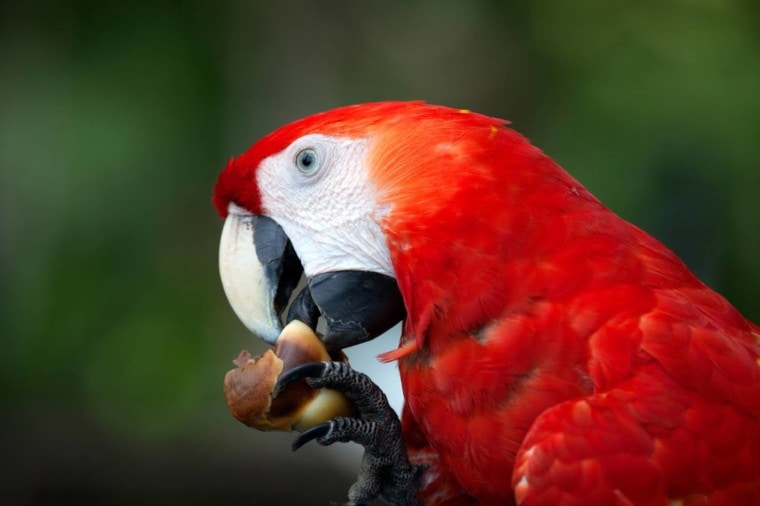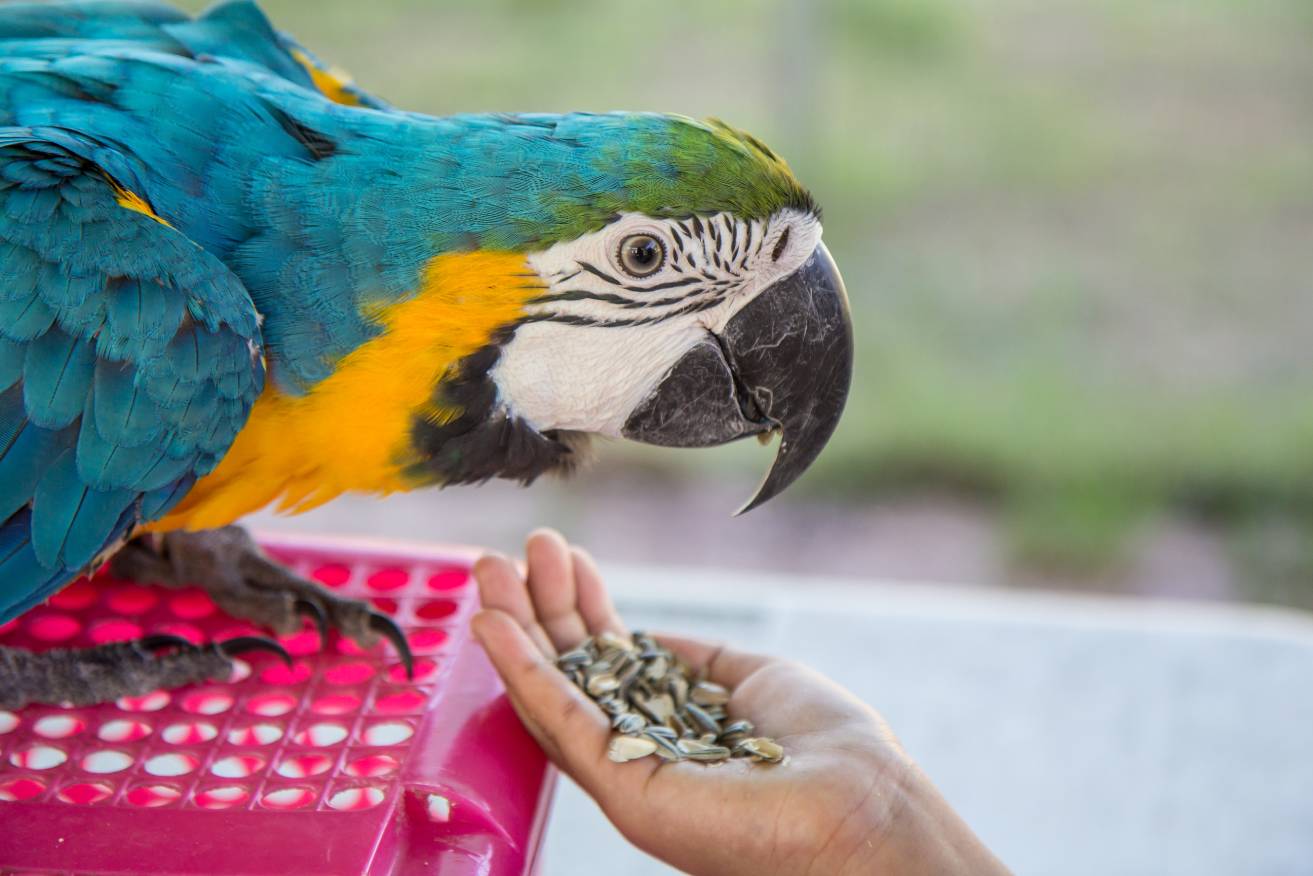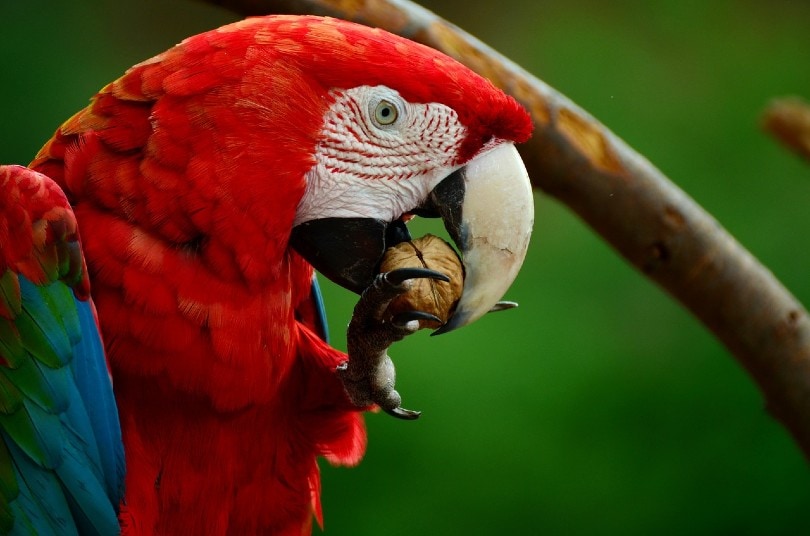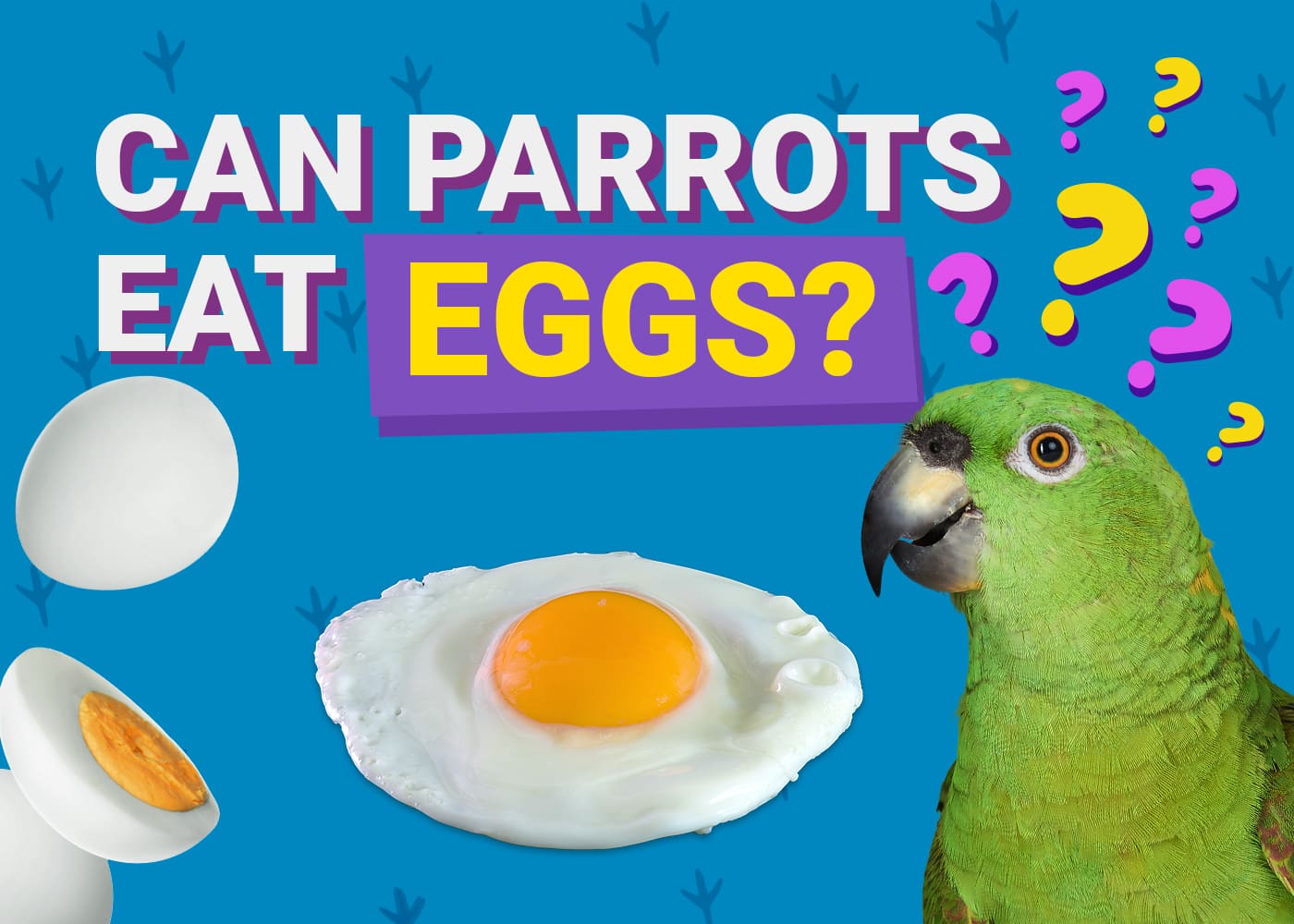
A majestic animal of the tropical forests, the macaw is a bird with few competitors when it comes to the sumptuous beauty of its plumage. There are 19 species in the wild, two of which are unfortunately extinct: the Glaucous macaw and the Spix’s macaw.
Intelligent, affectionate, social, and very vocal, the macaw is, however, not recommended for beginners since it is very high-maintenance. On the other hand, pet bird owners accustomed to large parrots fall in love with these magnificent and entertaining birds. To provide it with optimal care and quality of life, it is essential to give your tropical parrot a healthy and balanced diet consisting of seeds, fruits, vegetables, pellets or other bird food mix, and a few nuts. Find out everything you need to know about what food you should feed your precious macaw.
 What Is the Macaw’s Staple Diet?
What Is the Macaw’s Staple Diet?
Very loyal to their owner, macaws are also very playful and intelligent. So, don’t give in to the insistent stares and bows your adorable bird might show at first sight of a bag of chips or a piece of chocolate! Macaws, or even any other animal, are physiologically not made for these treats. So, what should you choose to feed your bird?
A wholesome diet mainly made of:
Good nutrition is essential for long life. Thus, a healthy macaw whose diet is rich and balanced will increase its chances of living for several decades by your side. If, to date, there are no studies establishing the “perfect” diet for macaws, most bird specialists agree on what is good to maintain the best health of your pet bird.
In addition, it is not recommended to feed your macaw only seeds or nuts. Birds need a complete diet that gives them all the nutrients they need. Indeed, a diet with a simple mixture of seeds could lead to deficiencies or infections due to a lack of nutrients and excess fat. However, given in small amounts and in addition to something else, they are not harmful to your bird.

Quick Facts about Macaws
| Scientific Name: | Psittacidae |
| Lifespan: | Up to 60 years in the wild; 35-50 years as pets (see note below) |
| Size: | 12-40 inches; 4.5 ounces to 3.75 pounds |
| Habitat: | Central and South American rain forests |
| Diet: | Omnivore |
| IUCN Red List status: | Critically endangered |
Note: Macaws in the wild tend to live longer than their domesticated counterparts, which is quite unusual as pet species generally enjoy better living conditions and live longer. However, most avian vets believe that nutrition is probably to blame for their shorter lives. Nutritional deficiencies, obesity, and fatty liver disease are all commonplace in these large pet birds. Therefore, a diet consisting only of seeds is not suitable for them; they also need fruits, vegetables, pellets or other bird food mix, and a few nuts.
Things to Consider
This recent study investigated whether a diet high in fructose (which is a sugar found naturally in fruits) could be responsible for atherosclerosis, a cardiovascular disease commonly encountered in pet parrots.
The researchers took the fruits out of the birds’ diet for a month and replaced them with vegetables. Although no significant effect could be demonstrated, more studies are needed to investigate the effect of high fruit intake in macaws and other parrots kept as pets, as this could influence their cardiovascular health. So, until new studies can shed light on the exact causes of this deadly disease, it’s best not to give your macaw too many high-fructose fruits (such as watermelon and grapes).

How Much Food Do Macaws Need?
Adult macaws need to eat about 15% of their body weight every day. So, for example, a macaw that weighs 2 pounds would need around 135 grams of food per day.
How Often Should You Feed Your Macaw?
Macaws eat every day, and they may eat several times throughout the day. As for young macaws, they need food every 4 hours.

What Food Should You Not Feed Macaws?
As with other pets, the macaw is no exception to the rule: certain foods and food items should be banned entirely from their diet; otherwise, their health will deteriorate:
 Conclusion
Conclusion
Macaws are brilliant animals, so they will look for stimulation in almost anything they do. This means that your pet bird will get bored quickly if you constantly feed him the same foods. This is also why, in addition to making pellets the basis of his diet, you must absolutely add fruits and vegetables that he can chew on and some nuts – such as Brazil nuts – that he will have fun breaking with its powerful beak. Not only will this stimulate your macaw and prevent boredom, but it will also ensure that he will access a complete, wholesome diet.
See Also:
Featured Image Credit by Gaston Piccinetti, Shutterstock

 What Is the Macaw’s Staple Diet?
What Is the Macaw’s Staple Diet?





